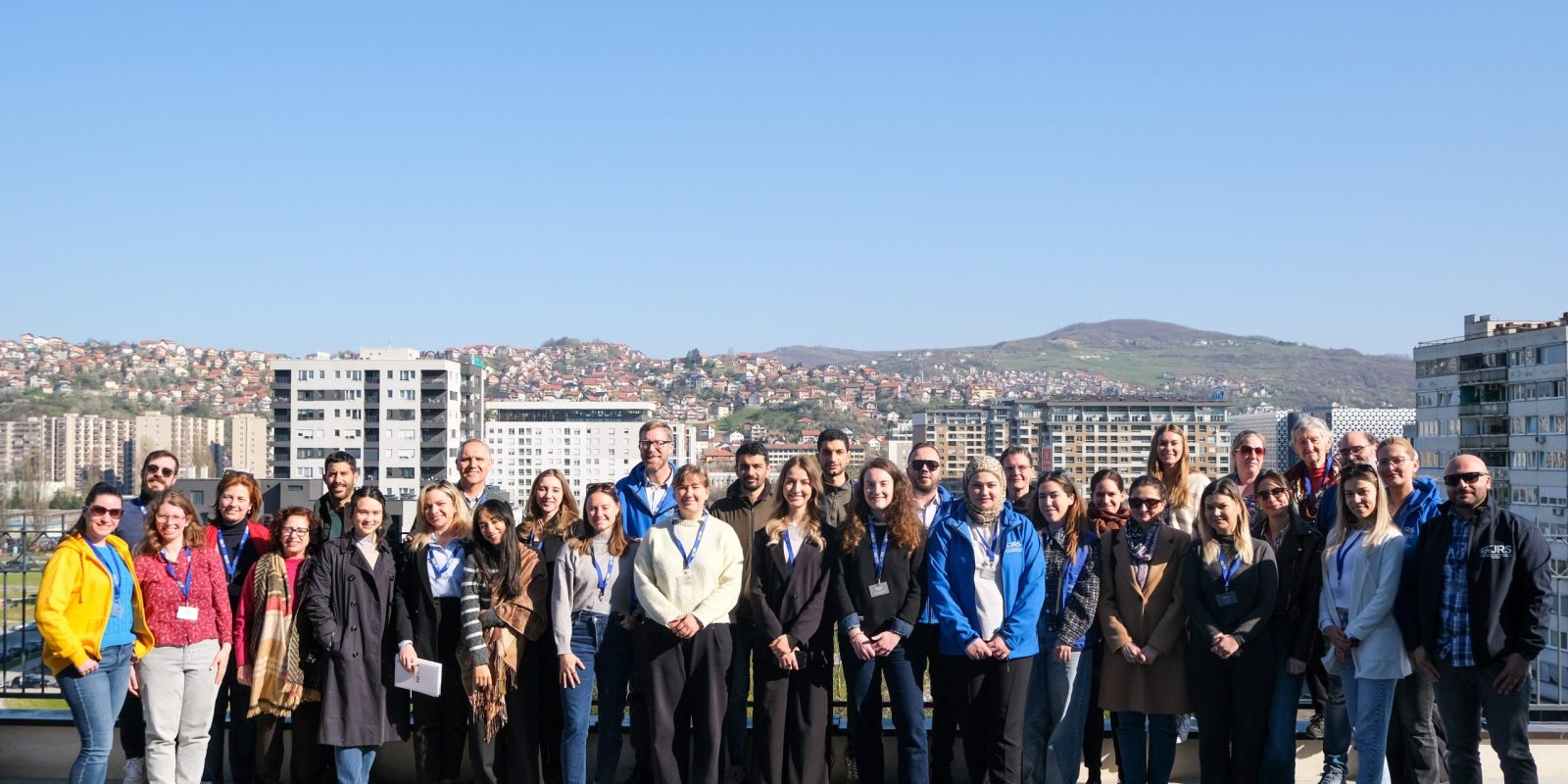The Superior General of the Jesuits visited the Jesuit organizations in Belgium
20 September 2024|JRS Europe
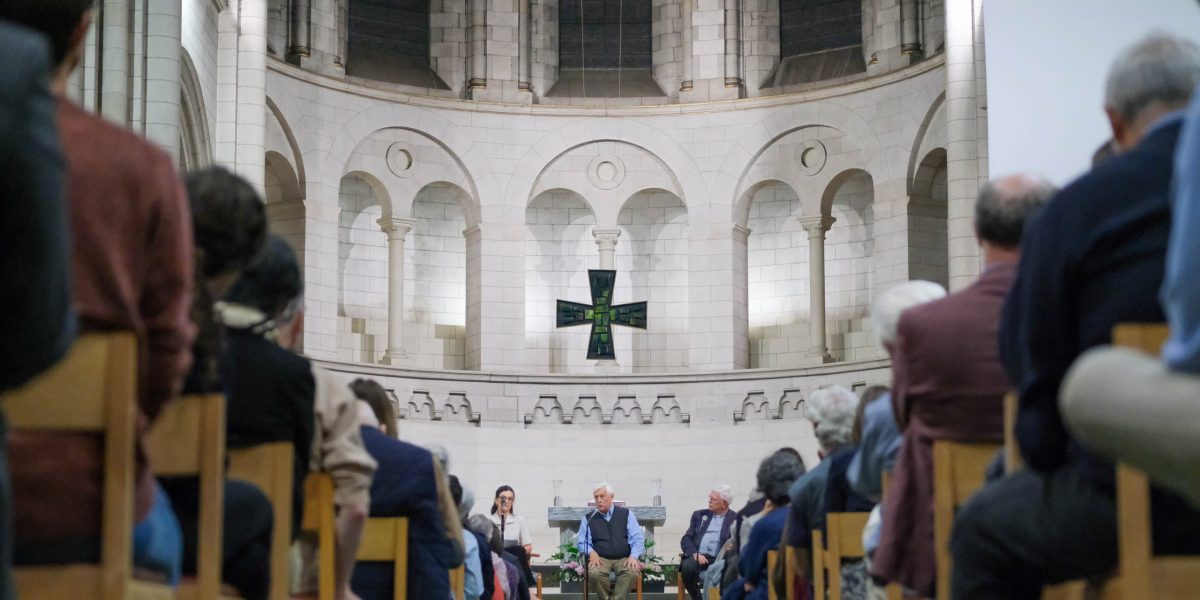
The superior general of the Society of Jesus, Arturo Sosa SJ, visited the French-speaking Western Europe province, which includes Jesuit communities and institutions in the French-speaking part of Belgium, and also those dependent on the Conference of European Provincials, including JRS Belgium and JRS Europe. During his two-day visit, he also participated in a mass and a roundtable held at the Church of Saint-Jean Berchmans where he discussed collaboration amongst Jesuits and with lay people.
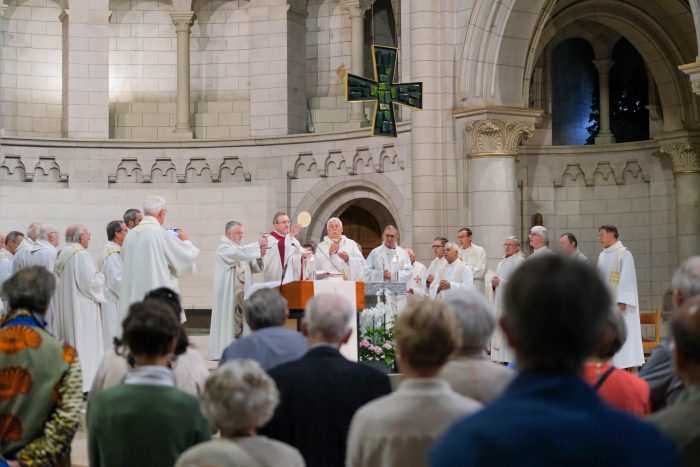
Europe must be a beacon of peace, solidarity, and co-responsibility
Arturo Sosa, the Superior General of the Society of Jesus, recently visited the Saint Benedict Jesuit community in Brussels, where he delivered a poignant message emphasizing the importance of the European project. During his address, Sosa urged attendees to recognize and appreciate the European Union’s role as a beacon of peace, solidarity, and co-responsibility—not just for its member states but for the entire world.
In a time marked by complex challenges, including a crisis of values and increasing polarization in both political and social spheres, Sosa called for a renewed commitment to democratic principles. He encouraged participants to actively engage in fostering conscious, critical, and committed citizenship, stressing that such efforts are vital for strengthening the fabric of democracy.
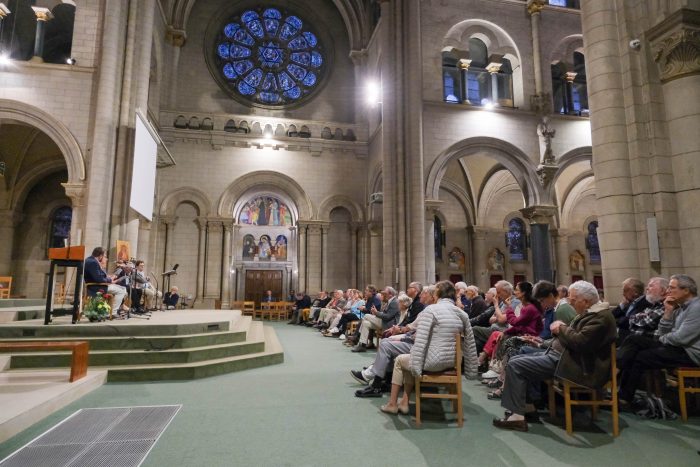
Jesuits continue committed to long-term support of Ukrainian refugees
Sosa’s visit also highlighted his deep empathy for Ukrainian refugees amid the ongoing humanitarian crisis. He praised the One Proposal initiative, a collaborative emergency response led by the Society of Jesus, which has provided vital support to those fleeing conflict in Ukraine. Since the onset of the war, the Jesuit Refugee Service has assisted over 110,000 displaced individuals through this program, which encompasses emergency aid, shelter, education, and psychosocial support, among others.
He urged JRS Europe to continue developing this initiative as long as necessary, reinforcing the Society’s commitment to serve those in need. Sosa’s message resonated with many present, inspiring a collective effort to uphold values of compassion and solidarity in these turbulent times.
Jesuit-Secular cooperation, an essential feature and a strong orientation
The visit concluded with a mass and a roundtable on collaboration among Jesuits and with lay people. The varied panel highlighted the importance of imprinting the 4Cs (competencies, consciousness, compassion & commitment) of Jesuit education to co-create positive change in all organizations. In addition, they stressed the already existing collaboration between Jesuits and lay people in multiple organizations which “already have the spirit of the Jesuits embedded into their mission”, including JRS.
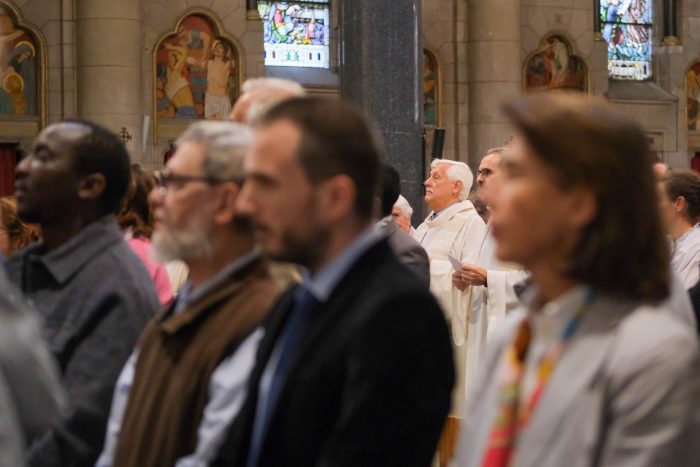
In his intervention, Arturo Sosa underlined the centrality of the Collaboration, through three elements: Apostolic work, charism and mission. The Society of Jesus is called to collaborate with God’s mission. All of us, Jesuits and lay people, are collaborators in that mission, working side by side with the Holy Spirit. The charisms within the Church are the gifts that we receive, and that we bring to that mission, and to the invitation to collaborate together. In this great Ignatian family we share the same mission, which is developed through apostolic works and each of our institutions, such as JRS.
Walking together
During his visit, Arturo Sosa also visited: Maison Saint Claude La Colombière, a residence for elderly fathers, brothers and sisters; Centre Avec; Matteo Ricci College; Saint-Michel College; Magis Bruxelles; Saint Michel Forum and Société des Bollandistes. He also met with the JRS Belgium team where he shared his support for the work done all around the country and expressed: “Everyone has the ability to analyze and think must be a priority. When it comes to ecology or helping migrants, we need to help people develop political analysis and commitment.”

